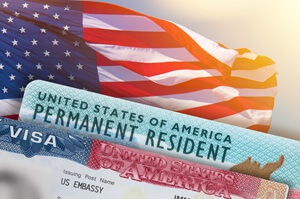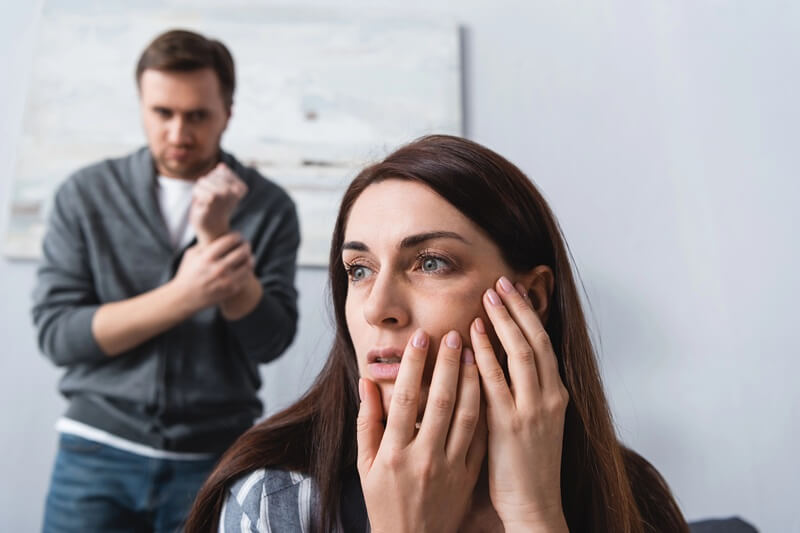Breaking free from the chains of domestic abuse can feel intimidating, especially when legal status is at stake. However, a Dallas VAWA lawyer can help survivors find a path to safety and independence. They guide victims through the legal process, protecting their rights and strengthening their petitions.
This article explains the key aspects of VAWA, including who qualifies and the requirements. It also discusses the act’s benefits and the steps involved in the petition process. Importantly, it explains how an experienced immigration attorney can provide invaluable support.

What Is VAWA & Who Qualifies For It?
The Violence Against Women Act (VAWA) is a federal law that provides protection and relief for victims of domestic abuse. This act allows survivors to submit a petition for immigration relief without involving their abuser. Moreover, it empowers victims to escape abusive relationships while safeguarding their legal status in the United States.
Individuals qualified to file a VAWA petition include abused spouses, parents, and children of U.S. citizens or lawful permanent residents (LPRs). To apply, they must meet specific eligibility requirements, including:
- Spouses married to U.S. citizens or LPRs, including those whose children suffered mistreatment by the same abuser.
- Parents of U.S. citizens aged 21 or older who endured acts of cruelty or abuse from their adult child.
- Children under 21 or up to 25 if delays were due to mistreatment or harm by U.S. citizens or LPRs.
Eligible individuals must carefully follow the petition process to ensure they receive the protections and opportunities it provides. This law offers many positives, including safety, independence, and stability. Thorough preparation and proper documentation are key to building a strong case and maximizing the benefits of this critical legal pathway.
What Are The Benefits Of VAWA Petition?
VAWA provides many benefits that empower survivors of abuse to rebuild their lives. The protections go beyond legal status, offering survivors a foundation for independence and stability. These positives create a path toward a safer and more self-sufficient future.
Protection From Deportation
One of the most significant benefits of VAWA is protection from deportation. Survivors can self-petition for immigration relief without relying on their abuser. This safeguard ensures that victims can focus on their well-being without fearing being removed from the country.
Access To Work Authorization
VAWA petitioners may become eligible for work authorization, which can lead to financial independence. This allows them to secure employment, support their families, and regain control over their lives. The ability to work legally can be a turning point for those emerging from abusive situations.
Eligibility For Public Benefits
In some cases, petitioners gain access to certain public benefits. These can include healthcare, housing assistance, or other resources to help survivors regain stability. These benefits act as a bridge, providing essential support during recovery.
Assurance Of Confidentiality
The VAWA process prioritizes the privacy and safety of petitioners. Immigration authorities are prohibited from notifying the abuser about the petition, ensuring confidentiality. It allows survivors to proceed with confidence and peace of mind.
To enjoy these benefits, petitioners must understand the steps in filing a self-petition. Learning the requirements and adhering to timelines can expedite the process and improve the chances of approval. This awareness empowers survivors to regain control and secure a stable and safe future.
How To File As A Self Petitioner?
Filing a VAWA petition is an empowering step for survivors seeking safety and immigration relief. Understanding the process ensures petitioners know the requirements and stages involved. Here’s a breakdown of the key steps:
Complete The Form I-360
The process begins with filing Form I-360, Petition for Amerasian, Widow(er), or Special Immigrant. This form serves as the official request for immigration relief under VAWA. It allows survivors to self-petition without involving their abuser, providing a critical step toward legal protection and independence.
Applicants must include accurate personal information, details about their relationship with the abuser, and evidence to demonstrate eligibility. Completing sections correctly avoids delays or issues during the review process.
Gather Supporting Evidence
Survivors must provide evidence, such as documentation of extreme cruelty, including police or incident reports. Medical records documenting abuse-related injuries can also strengthen the proof. Presenting a well-organized and compelling case increases the likelihood of a successful petition.
Demonstrate Eligibility
To file a successful VAWA petition, applicants must meet qualifications. These requirements help establish the petitioner’s connection to the abuser and ensure they qualify for the law’s protections. Some key eligibility requirements include:
- A qualifying relationship as a spouse, child, or parent of a U.S. citizen or lawful permanent resident.
- Abuse or extreme cruelty experienced during the qualifying relationship, including harm to the petitioner’s child by a spouse.
- Current or past residence with the abusive relative at some point during the relationship.
- Proof of good moral character through supporting documentation, such as police clearances or character references.
These elements ensure that only individuals who meet VAWA’s requirements can access its protections. Addressing each eligibility factor thoroughly minimizes the risk of issues during the review process.
Submit The Petition To USCIS

Applicants must submit Form I-360 and all supporting documents directly to U.S. Citizenship and Immigration Services (USCIS). Ensure complete and accurate information to avoid unnecessary delays or rejections and streamline the process.
Moreover, any additional evidence needed to establish eligibility must be included. This can consist of proof of abuse, cohabitation, or moral character. To keep the process on track, follow USCIS filing instructions carefully and meet all deadlines.
Wait For The USCIS Decision
After submission, USCIS reviews the petition to determine eligibility. Petitioners receive a Request for Evidence (RFE) if additional documentation is required. A favorable decision grants immigrant classification, allowing the petitioner to apply for lawful permanent residency.
The self-petition process can be intricate, requiring careful attention to detail at every stage. Hiring an experienced Dallas VAWA attorney ensures applicants have the support they need to navigate the process effectively. Legal guidance can make a difference in achieving a successful outcome.
How Can A Dallas VAWA Lawyer Help Petitioners?
Filing a VAWA self-petition is a significant step toward independence, but the process can be challenging to manage alone. A skilled lawyer can provide critical support to ensure the petition is accurate, thorough, and meets all legal requirements.
Guidance Through The Legal Process
A lawyer understands the intricacies of VAWA petitions and ensures that all required forms and documents are correctly prepared. They help streamline the process, from filing Form I-360 to responding to USCIS communications. This guidance reduces the risk of delays caused by incomplete or incorrect submissions.
Assistance In Gathering Evidence
Evidence is the backbone of the petition, and a lawyer can help identify and organize the necessary documents. They also help survivors collect police reports, medical records, affidavits, and other supporting materials. With their help, applicants can present a strong case that demonstrates eligibility.
Advocacy During Communications With USCIS
Interacting with immigration authorities can be burdensome for many survivors. A lawyer serves as the petitioner’s advocate, handling all communications with USCIS on their behalf. This representation ensures that they feel supported throughout the process.
Meeting Deadlines & Responding To RFEs
Missing deadlines or failing to address requests like RFE can jeopardize a petition. Lawyers track critical deadlines, ensure timely responses, and provide additional documentation if needed. Their attention to detail can significantly affect the outcome.
Thorough evaluations and proper legal guidance are key to building a successful petition. Hire an experienced and proficient Dallas VAWA law firm with dedicated support tailored to your needs. This decision allows survivors to secure a safe future.

Why Should You Work With Dallas Immigration Lawyers?
At Dallas Immigration Lawyers, we focus on providing personalized legal assistance tailored to your unique situation. We understand the challenges survivors of abuse face and work diligently to help you file a strong petition. Our team ensures you feel supported and informed every step of the way.
Moreover, we handle the legal process so you can focus on rebuilding your life. We hold the details from preparing and filing Form I-360 to gathering evidence and meeting deadlines. Our thorough approach reduces the risk of delays or complications with your petition.
Our team gives you an advocate who prioritizes your safety and privacy. We communicate directly with immigration authorities on your behalf, shielding you from unnecessary stress. Our team also handles your case with the confidentiality and respect it deserves.
We stay up-to-date with immigration laws and procedures to provide the most effective solutions for your case. Whether you need assistance with your initial petition or addressing a Request for Evidence, we are here to guide you toward a successful outcome. Contact us today for a consultation, and let us help you navigate the process.
Summary
The Violence Against Women Act (VAWA) provides crucial protection and relief for survivors of domestic abuse. Eligible individuals, including abused spouses, children, and parents of U.S. citizens or lawful permanent residents, can self-petition for immigration relief.
Filing a VAWA petition requires accurate forms, strong evidence, and meeting eligibility criteria. A skilled attorney offers critical support, from legal guidance to handling communications with USCIS. At Dallas Immigration Lawyers, we help survivors gain personalized assistance to build a strong case and work toward a stable future.

